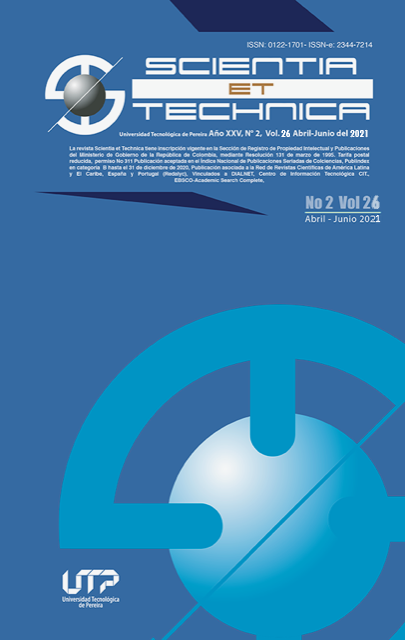The Human Computer Interaction in the Curricula of Mexican Higher Education Institutions
La interacción Humano Computador en el Currículo de las Instituciones de Educación superior de México
DOI:
https://doi.org/10.22517/23447214.24496Keywords:
HCI, Higher education, Mexico, Human-Computer InteractionAbstract
This article presents the actual state of the incorporation of HCI-related academic subjects to some Mexican universities’ academic programs. The research approach was exploratory and descriptive, also having a quantitative scope. The research considered the 5543 registered universities in all of Mexico in 2019. Results show that 1266 universities offer undergraduate and technical programs in the Information and Communications Technology field, from which 42.58% include 1548 courses related to HCI in their academic programs that are part of 1813 curricula. The courses were then classified into 10 categories proposed by the ACM/IEEE-CS “Joint Curriculum Task Force Computing Curricula”. Additionally, in relation to human capital, it was found that 95.40% of college graduates that studied in a university that includes HCI subjects, had to take them in order to get their degree while 4.30% had the possibility of taking them optionally. Finally, after reviewing 4 different job search platforms, 24827 offers were found that required skills and knowledge related to HCI. This certainly shows that Mexican universities know what is needed and have been developing professionals with skills based on industry needs, at least in the HCI field.
Downloads
Downloads
-
Vistas(Views): 737
- PDF Descargas(Downloads): 421
Published
How to Cite
Issue
Section
License
Copyrights
The journal is free open access. The papers are published under the Creative Commons Attribution / Attribution-NonCommercial-NoDerivatives 4.0 International - CC BY-NC-ND 4.0 license. For this reason, the author or authors of a manuscript accepted for publication will yield all the economic rights to the Universidad Tecnológica of Pereira free of charge, taking into account the following:
In the event that the submitted manuscript is accepted for publication, the authors must grant permission to the journal, in unlimited time, to reproduce, to edit, distribute, exhibit and publish anywhere, either by means printed, electronic, databases, repositories, optical discs, Internet or any other required medium. In all cases, the journal preserves the obligation to respect, the moral rights of the authors, contained in article 30 of Law 23 of 1982 of the Government Colombian.
The transferors using ASSIGNMENT OF PATRIMONIAL RIGHTS letter declare that all the material that is part of the article is entirely free of copyright. Therefore, the authors are responsible for any litigation or related claim to intellectual property rights. They exonerate of all responsibility to the Universidad Tecnológica of Pereira (publishing entity) and the Scientia et Technica journal. Likewise, the authors accept that the work presented will be distributed in free open access, safeguarding copyright under the Creative Commons Attribution / Recognition-NonCommercial-NoDerivatives 4.0 International - https://creativecommons.org/licenses/by-nc-nd/4.0/deed.es license.



